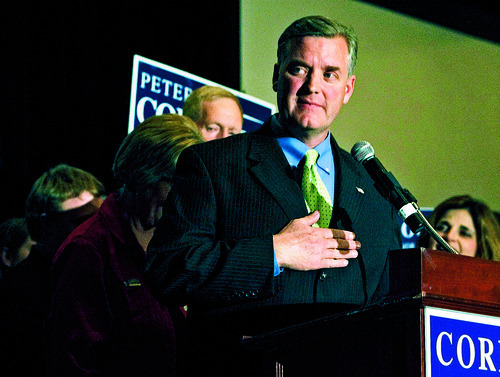This is an archived article that was published on sltrib.com in 2011, and information in the article may be outdated. It is provided only for personal research purposes and may not be reprinted.
The police fee is on its way out. A property tax is poised to take its place.
The Salt Lake County Council voted in a straw poll Tuesday to pursue a property tax exclusively for policing in unincorporated suburbs such as Kearns, Magna and Millcreek.
Although it would mean higher property taxes for tens of thousands of households, the move is expected to reduce the overall amount residents would pay for law enforcement.
Instead of paying $266 a year through a combined police fee ($162) and property tax ($104) — not counting the dollars that now come to law enforcement through sales tax — the owner of a $220,000 home would pay about $218 in property taxes.
"Under this plan," County Mayor Peter Corroon said, "the majority of unincorporated Salt Lake County homeowners will actually pay less than they have with the police fee."
But the county's push toward a dedicated property tax goes beyond replacing the police fee, which helps pay for officers in the Unified Police Department.
It's about giving the department its own tax stream that would not have to compete with other political priorities when the county builds its budget.
The county now pays for law enforcement through a combination of property and sales taxes (not counting the police fee, which the Legislature ordered eliminated). Property taxes are stable. Sales taxes aren't.
Consequently, when the economy sags — as it did during the Great Recession — the police force feels the financial pain. People spend less money. And sales taxes decline.
The County Council wants to eliminate those ups and downs.
So when the county replaces its police fee, officials plan to give the police force all of the property tax now collected for citylike services in unincorporated areas. The sales taxes, in contrast, would stay with the county to pay for public works projects.
"It would provide security to an essential service," Councilman Jim Bradley said.
But it also would add insecurity to other important services such as plowing snowy streets, fixing roads and building sidewalks, worries Councilwoman Jani Iwamoto.
Public Works Director Patrick Leary said he supports the plan, but acknowledged concerns about how the public works budget would pencil out during hard economic years.
"Sales tax is more volatile," he said. "Everyone knows that. That makes us a little nervous."
The County Council, which nodded in favor of the changes 6-0 Tuesday, is expected to ratify its decision during budget talks later this year. The change then would take effect in January 2012.
Council members Arlyn Bradshaw and Richard Snelgrove were absent from the discussion and Councilman Steve DeBry, who works for the Unified Police Department, abstained.
The move to a police force with a dedicated property tax could have implications outside of county government.
Riverton Mayor Bill Applegarth said Tuesday that his city may be interested in joining the county's law enforcement taxing district if officials take that route. It makes sense, he said, to have a specific funding stream for public safety.
"I believe it is the right thing to do," Applegarth said. "You isolate the tax for the service so people know that the tax is going totally toward police functions. … It's very appealing to us and it's very appealing to our citizens.
jstettler@sltrib.comTwitter: Stettler_Trib



